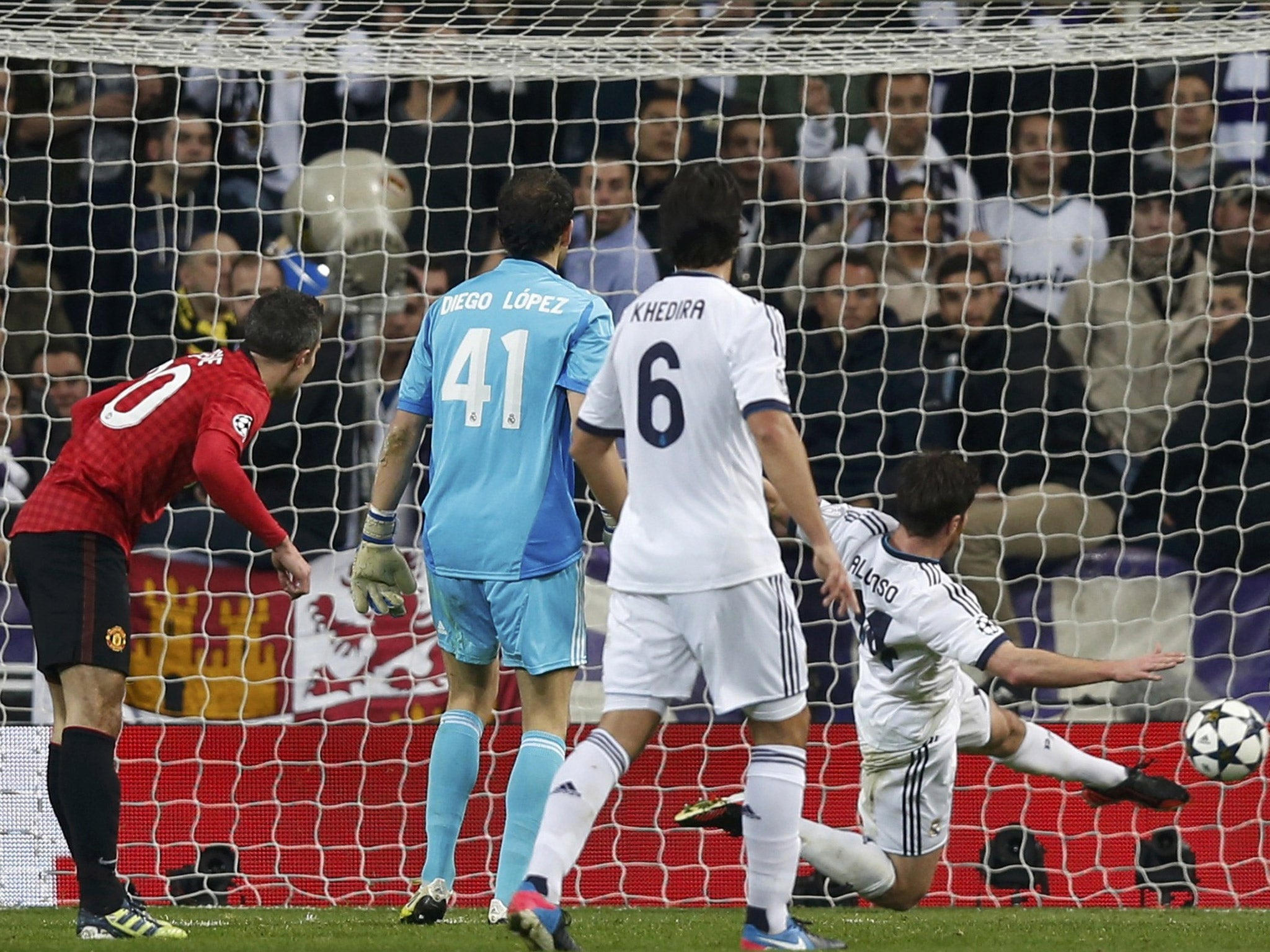James Lawton: Manchester United pull out old fighting qualities against Real Madrid so typical of Sir Alex Ferguson
The Manchester United manager has an enduring ability to produce competitive teams

They may not be the Manchester United that used to routinely light fires at home and across Europe but they are still recognisably Manchester United.
This is to say that they retain unique qualities of fighting character and after superbly restraining some of the best that a now single-minded Real Madrid, for whom nothing for the moment exists beyond the Champions League, could produce in their own most intimidating fortress, their manager Sir Alex Ferguson had reason to believe that he may once again have a gleam of light in what not so long ago seemed like on-rushing crisis.
Jose Mourinho, gritting his teeth on the draw and the concession to United of an away goal, rejected the idea that his team have yielded too much vital ground.
He said that the battle would resume wide open at Old Trafford and certainly when the managers embraced before their ritual swigging of a glass of red wine, there was certainly no sense that either man held a whip-hand. They are locked, indeed, in the middle of a most absorbing battle, and which at the very least said that United have indeed found a foothold on the higher levels of the European game.
By half-time we had the measure of what United might achieve by going home in any situation resembling parity. Above all, it would be another tribute to the enduring ability of Ferguson to produce competitive teams unwilling to accept that time, and the balance of power, has moved against them – at least on the wider European front.
A less combative tradition would surely have been pushed to an early breaking point by the ease with which Cristiano Ronaldo and Mesut Ozil carved open huge swathes of space in the United cover and Rafael da Silva's desperate first half concluded with a yellow card – for grappling down the brilliant Ozil on the edge of the box – and the sense that as long as he remained on the field he would be not much more than some ultimate disaster.
However, no one could say that this Ferguson team had lost the ability to fight with some coherence in the great football cockpit where the need to win a 10th European crown has become not so much still another ambition but a daily obsession. United, and especially David de Gea held their nerve under a ferocious opening bombardment, most obdurately when the goalkeeper touched the ball on to the post when Fabio Coentrao sent in a brilliantly angled shot.
Less resolute spirits might have buckled but there is not a whole lot of surrender in the DNA of Ferguson teams and nor was there now. Indeed, Danny Welbeck's opener on 20 minutes was a fine example of United's ability to absorb some biting pressure and then strike back with the most serious intent. His header was a beautifully controlled response to Wayne Rooney's perfectly judged corner. Unfortunately that of Ronaldo to Angel di Maria's cross 10 minutes later came from an entirely different dimension.
Ronaldo conjured the most vivid memory of his vital strike for United against Chelsea in the 2008 Champions League final in Moscow. His hang-time was supernatural and then his header gave De Gea not the sliver of a chance.
Again, though, the Spanish goalkeeper showed superior defiance early in the second half when once more he denied the impressive Coentrao at his near post when Sami Khedira delivered a potentially devastating cross. It was a statement of defiance which brought a chill to the Bernabeu and still another reminder that killing off United, at any level and in any corner of football, is still an ultimate test of a team's resolution. It demands a degree of hauteur – and an even greater concentration of finishing efficiency.
The problem is the message that Ferguson is still able to inject into the very bloodstream of his team. This is the one that brings an extremely low regard for the degree of difficulty in whatever situation they happen to face and for so long, this was represented most brilliantly by the often embattled De Gea. He came home to Madrid with a battery of questions against his long-term ability to succeed men like Peter Schmeichel and Edwin van der Sar but here he had a major statement to make.
He had made eight significant saves by the time Robin van Persie twice threatened to give United the wondrous bonus of a second away goal and the timeless Ryan Giggs came on to support the possibility that his team, having again exerted its authority at home, was once again in the business of competing seriously in Europe.
By then Mourinho, football's great street fighter, had decided to stiffen his defence and consider the possibilities of counter attack at Old Trafford, perhaps an easier challenge away from the broiling pressure of the Bernabeu.
Whatever the Special One did, however, he could not obscure the fact that once again his old warrior opponent had found the secret of making a team play to the very limit of its ability. It is a tough quality indeed and, still, there are times when it is hard to separate from competitive genius.
Join our commenting forum
Join thought-provoking conversations, follow other Independent readers and see their replies
Comments